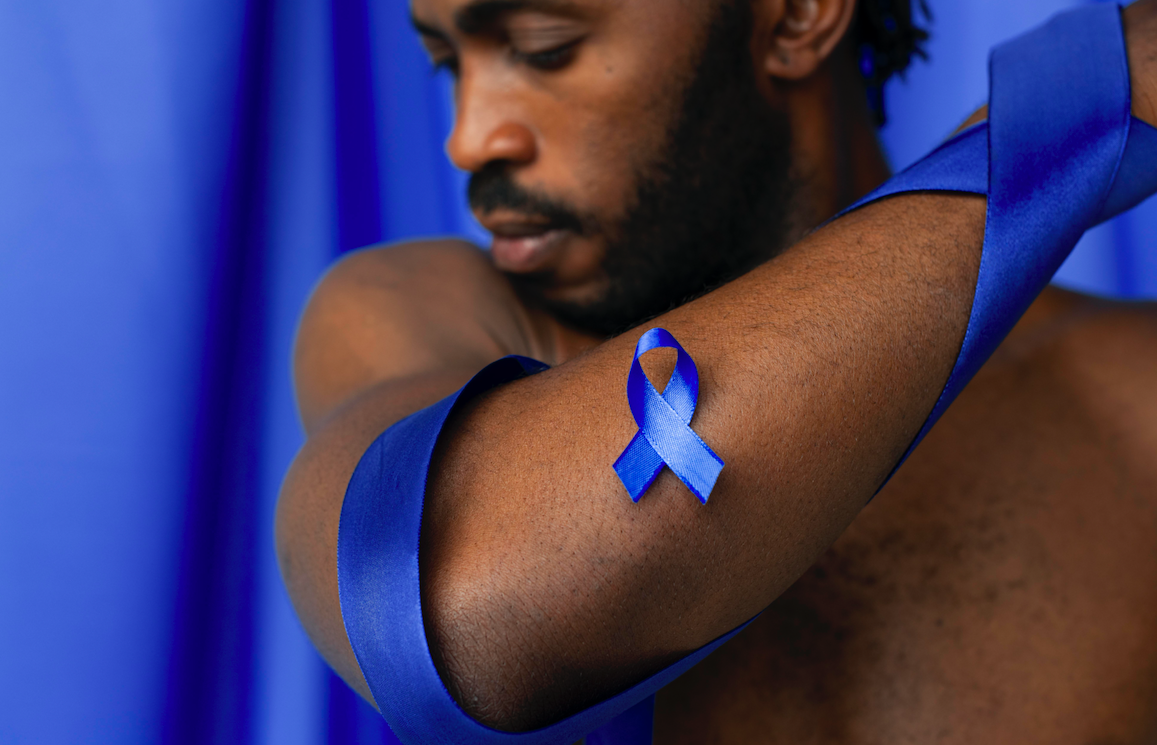
March 21st marked Anal Cancer Awareness Day, a day dedicated to raising awareness about an often-overlooked form of cancer. Yet, for many individuals anal cancer is an urgent health crisis that cannot be ignored. The theme of this year’s observance, "It’s Time to Talk About It," could not be more relevant as global incidence continue to rise.
It is time we have a frank conversation about anal cancer, its causes, its risk factors, its impact, and, most importantly, the need for prevention, early detection and in some cases treatment.
The Reality of HPV and Anal Cancer
As an HIV clinician deeply involved in male sexual health including HIV and HPV care and prevention, I’ve seen the realities of anal cancer firsthand. And while it’s not pretty, it’s wholly preventable. In Kenya, like many parts of the world, anal cancer remains an under-discussed issue—particularly with respect to vulnerable groups of men, including key populations like people living with HIV, sex workers and men who have sex with men.
Despite clear evidence linking anal cancer to the human papillomavirus (HPV), a common sexually transmitted infection, HPV prevention and early detection strategies remain largely inaccessible to those most at risk.
According to the Anal Cancer Foundation up to 95 percent of anal cancer cases are linked to persistent infection with HPV. HPV vaccination and regular anal cancer screenings can prevent and detect anal cancer early, potentially saving lives. However, these solutions are often under-utilised, especially among communities of gay, bisexual and other men who have sex with men where stigma surrounding anal health and sexual practices prevails.
The lack of awareness and resources for anal cancer prevention means many individuals, particularly within high-risk groups, go undiagnosed until it’s too late. This delay worsens outcomes and further emphasizes the urgency for improved education around sexual risks and healthcare access.
The
intersection between HIV and HPV vulnerability necessitates urgent attention.
People living with HIV are at a significantly higher risk of developing
HPV-related cancers, including anal cancer.
Working in a clinic in Nairobi, a community health center focused on HIV and sexual health care for men, I have the privilege of leading the development of Kenya's first dedicated anal health screening programme. We implement standard operating procedures and an expanded HPV intake screening tool we developed within a larger international, multisectoral collaborative research programme.
These tools were reviewed and approved by the Nairobi County Health Management Team and the National Cancer Institute of Kenya (NCIK) as part of our advocacy for a comprehensive anal healthcare model. This model aims to enhance early screening, vaccination, disease detection, and treatment access, especially for HIV-positive men who are at higher risk for HPV-related diseases such as anal warts and cancer.
The Case for HPV Vaccination and Screening
Anal cancer incidence data come mainly from high-income countries. While specific data on the total number of anal cancer cases in Kenya is limited, over the last few years, four diagnoses of anal cancer were made at my clinic. Of these, three male patients unfortunately passed away due to late-stage presentation and subsequent surgical-related complications. One individual successfully completed chemotherapy after early detection via anal health screening—demonstrating the importance of timely intervention.
The good news is that HPV vaccination, combined with regular anal cancer screenings, can prevent and detect anal cancer early. All HPV vaccines have been found to reduce risk by almost 100 percent. Studies globally, including in countries with established vaccination programs like Australia and the United Kingdom, have shown significant reductions in HPV infections and related cancers through gender-neutral vaccination campaigns.
Implementing gender-neutral HPV vaccination and comprehensive screening programs is key in addressing health inequities, particularly for HIV-positive individuals and vulnerable men. Although men and boys are also significantly affected by HPV and its related cancers, they are often excluded from vaccination programs. Gender-neutral campaigns are crucial to ensuring equal access and prevention for all.
Breaking the Silence: Stigma
Reduction and Awareness Creation
Beyond
clinical practice, education plays a key role in shifting the anal cancer
narrative. In many cultures, discussions about anal health are often silenced
due to discomfort and stigma, particularly in the context of sexual health.
World Anal Cancer Awareness Day provides an opportunity to encourage these difficult
conversations, normalize screenings, and promote preventative HPV vaccination.
Anal Cancer Awareness Day is an apt time to call on governments, health providers, funders, and civil society to prioritize the fight against this dangerous disease. Particularly, the Kenya National Institute of Cancer (NCIK) should incorporate boys and men into the HPV vaccination programs, especially those in high-risk groups.
Additionally,
anal cancer data availability must improve. There
is a need to invest financial and human resources in establishing and
sustaining cancer registration systems. Improved efforts to gather data
on the prevalence and incidence of anal cancer are essential to better track
the burden of disease and to prioritize its care and prevention.
As we mark World Anal Cancer Awareness Day, the call to action is clear: It’s time to talk about it. We cannot shy away from uncomfortable conversations about anal cancer and the HPV-related illnesses affecting vulnerable groups of men. The stigma surrounding these topics must be dismantled, making way for greater awareness, earlier diagnoses, and increased access to care.
Anal
cancer—It’s time to talk about it!
Samuel Anyula Gorigo is an
AVAC Fellow and healthcare provider based at HOYMAS medical center in Nairobi,
Kenya.









